You’re strolling down a quiet street in a charming town in Germany. The road is empty, no cars anywhere. But the little red man on the pedestrian signal is on. You quickly check both ways and decide to cross anyway.
Out of nowhere, you hear a sharp voice scolding you in German. An older woman is giving you a lecture. Confused? You’ve just broken one of Germany’s unwritten rules.
Germany is a country full of rich history, precision, and long-held traditions. But some of these customs can be easy to miss if you’re a first-time visitor.
I’ve Lived in germany for more Than a decade and To help you avoid any awkward moments and make your trip smoother,I’ve put together 10 essential unspoken rules you should know when traveling to Germany.
Contents
- 1 1. Always Be on Time (No, Really, It’s Called Pünktlichkeit)
- 2 2. Master the Formalities: Greetings and the Sie/du Divide
- 3 3. Wait for the Little Green Man: Jaywalking Is a Serious Offense
- 4 4. Always Keep Cash (Bargeld)
- 5 5. Respect the Sunday Silence (Sonntagsruhe)
- 6 6. Toast Like a German: The Prost! Protocol
- 7 7. Know That Directness Is Not Rudeness
- 8 8. Prepare for the Supermarket Checkout Race
- 9 9. Learn the Pfand System: Your Bottle Is Worth Money
- 10 10. Validate Your Public Transport Ticket, or Face the Consequences
- 11 Navigate Germany Like a Pro
1. Always Be on Time (No, Really, It’s Called Pünktlichkeit)
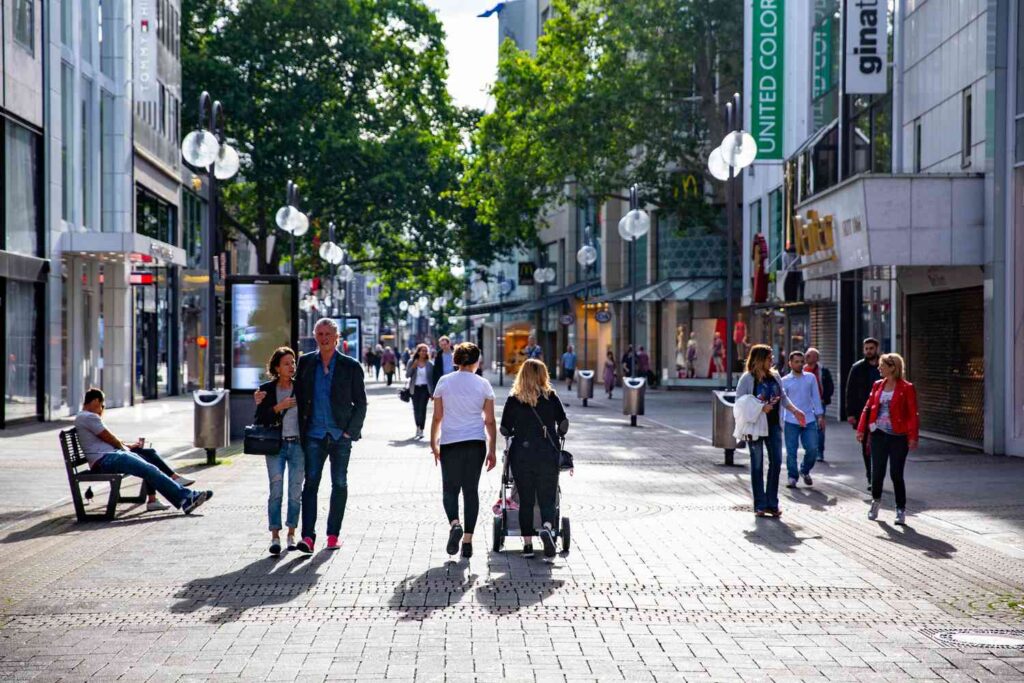
In Germany, being on time isn’t just nice; it’s a sign of respect. Known as Pünktlichkeit, it’s something Germans take really seriously.
Being “on time” actually means arriving 5 to 10 minutes early. If you show up exactly at the agreed time, you’re already considered a bit late. Showing up late without a good reason is seen as disrespectful to the other person’s time.
This focus on punctuality goes way back. It started with Prussian discipline and the tight schedules of the Industrial Revolution. When the railway system grew in the 1800s, precise timing became essential for the country’s success, turning punctuality into a key part of German culture.
So, what if you’re running late? Always call ahead. Let the person know you’re delayed, apologize, and give them an updated arrival time. It’s a simple way to show you respect their time, even if things don’t go as planned.
Also See: These 10 Incredible Italian Road Trips Will Make You Wonder Why You Didn’t Go Sooner
2. Master the Formalities: Greetings and the Sie/du Divide
In Germany, greetings are a bit more formal than in many other cultures. One of the key things to understand is the difference between the formal Sie (you) and the informal du (you).
Here’s a simple rule: always use Sie when you don’t know someone, in professional settings, with officials, or with anyone older than you. Using Sie shows respect and keeps a polite distance.
You can use du with close friends, family, and kids. If you’re unsure, it’s safest to start with Sie. It’s the polite choice.
There’s also a specific way to switch from formal to informal. The older person or the higher-ranking person in a business setting will offer to use du, often saying “Sollen wir uns duzen?” (“Shall we use du with each other?”).
When meeting someone, always shake hands firmly (but briefly) and make eye contact. And if you enter a small shop, a doctor’s office, or a quiet café, it’s common to greet everyone with a friendly “Guten Tag” (Good day) and say “Auf Wiedersehen” (Goodbye) when you leave.
3. Wait for the Little Green Man: Jaywalking Is a Serious Offense
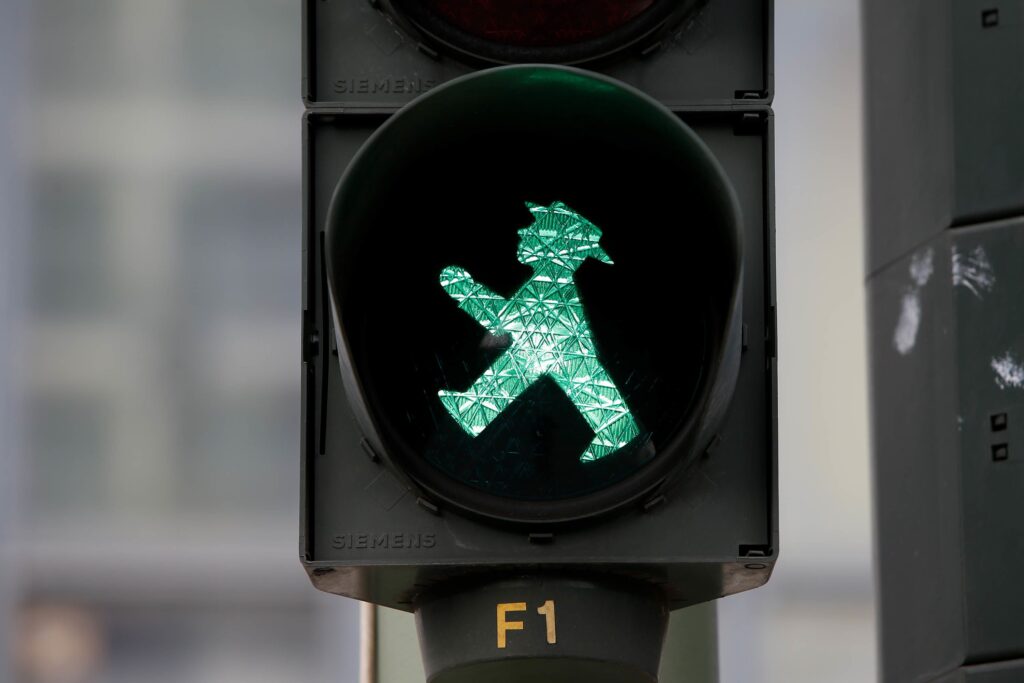
Remember that story from earlier? Here’s the rule: don’t cross the street on a red light, no matter how empty the road is. A German will wait for the little green man on the traffic light, and you should too.
The consequences for breaking this rule go beyond just a small fine (about 5 EUR). The real penalty is social. You’ll probably get some disapproving looks and might even get publicly scolded, especially if there are parents with kids around.
This rule isn’t just about following traffic laws; it’s about setting a good example for the next generation. Germans see it as a way of teaching kids that rules are there for everyone’s benefit. It’s a clear reflection of the country’s value for order and civic responsibility.
4. Always Keep Cash (Bargeld)
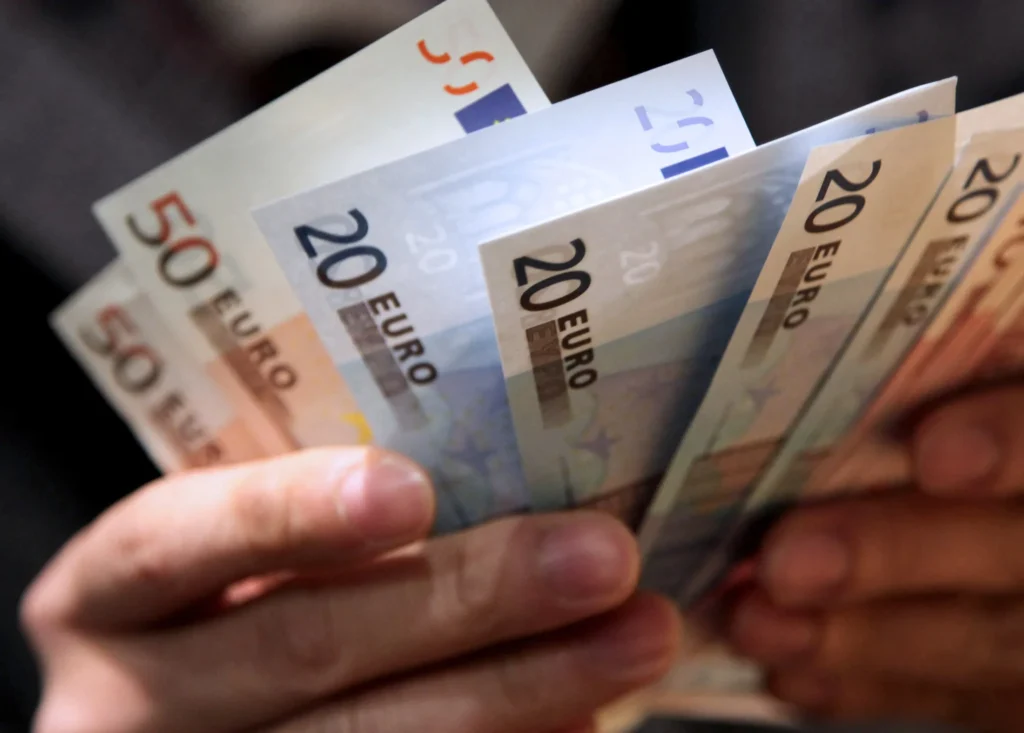
Even though Germany is super modern and tech-savvy, cash (Bargeld) still rules the day.
Many smaller shops, bakeries, market stalls, and even some traditional restaurants and bars don’t accept credit cards. There’s even a popular saying in Germany: “Nur Bares ist Wahres,” which means “Only cash is real.
Paying with cash is anonymous, final, and gives you more control over your money. Using a card leaves behind a digital trace.
As a traveler, this is an important tip. Always have some Euros on hand. You’ll need cash for daily purchases, and don’t forget coins for things like public restrooms and tipping.
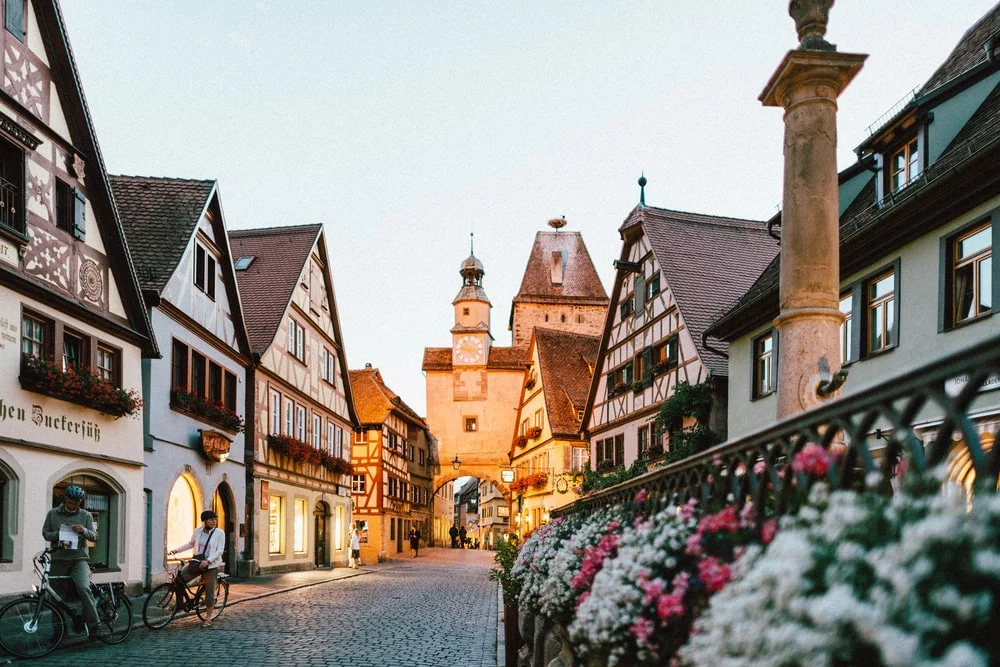
On Sundays, Germany takes it easy. This is thanks to a rule called Ruhezeit (quiet hours), with Sonntagsruhe (Sunday quiet) being the most important and legally protected. On Sundays, almost all shops, including supermarkets and pharmacies, are closed by law.
Sonntagsruhe means you’re also not allowed to make loud noises that might disturb your neighbors. So, no vacuuming, lawn mowing, using power tools, or blasting music. This rule started from religious traditions but is now a law that ensures everyone gets a peaceful day off.
For travelers, this means you need to plan ahead. Do your shopping on Saturday, and save Sundays for quieter activities. You can visit museums, go for a hike, or relax in a café, as those places are usually open.
Also Read: 15 Medieval European Walled Cities So Stunning That Will Make You Question How Such Beauty Survived
6. Toast Like a German: The Prost! Protocol
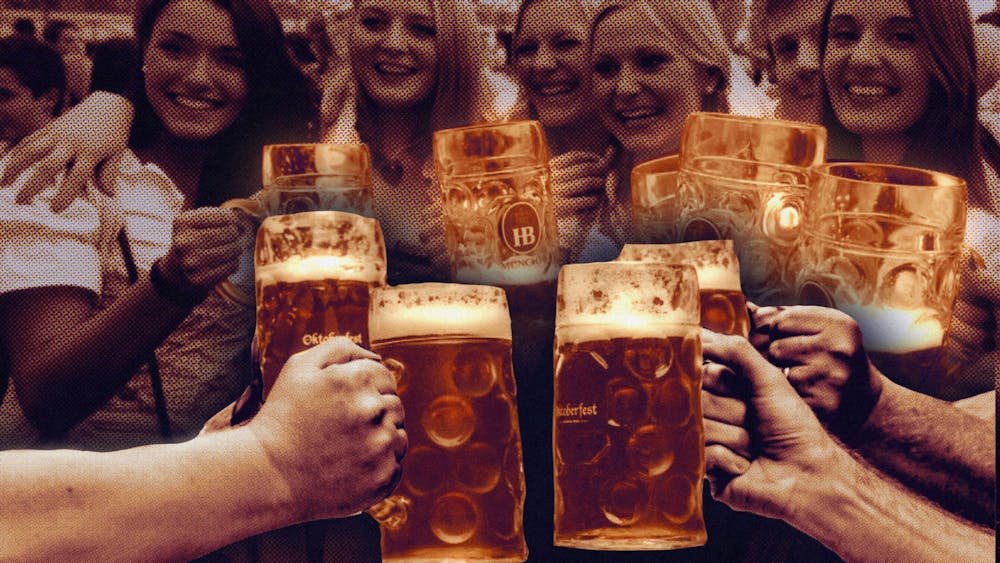
In Germany, sharing a drink comes with its own social rules. When you toast, it’s essential to make direct eye contact with everyone at the table as you clink glasses.
This is a deeply held cultural tradition, and there’s even a superstition behind it. The belief is that if you don’t make eye contact, you’ll have seven years of bad luck, especially in the bedroom!
Also, make sure to use the right toast. When you’re drinking beer or in a casual setting, say “Prost!” For wine, go with the slightly more formal “Zum Wohl!” (“To your health!”).
Read: These 9 Hidden Greece Islands Are Even More Breathtaking (and Peaceful) Without the Crowds
7. Know That Directness Is Not Rudeness

Get ready for a communication style in Germany that’s super direct, honest, and to the point. What might seem blunt to you is just seen as an efficient and respectful way of sharing information.
In German culture, honesty is the top priority, and “sugarcoating” things is often viewed as insincere or even misleading.
You’ll also notice that small talk is kept to a minimum. Germans usually skip the weather chat and dive straight into the matter at hand.
So, don’t take it personally. A direct “no” or a straightforward critique is just how Germans prefer to be clear and honest.
8. Prepare for the Supermarket Checkout Race
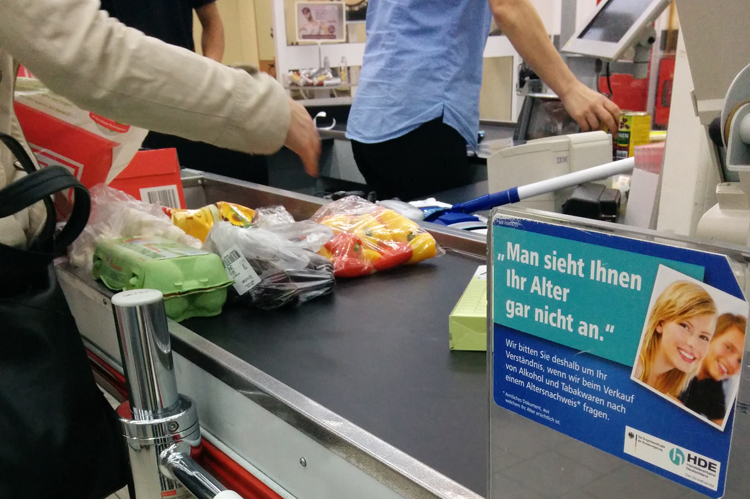
Going to a German supermarket can be a bit of a shock, especially when you reach the checkout. It’s all about speed and efficiency. Cashiers scan items at lightning speed, and there’s an expectation that you’ll keep up.
You’re expected to bag your own groceries, and you need to do it fast. Make sure you bring your own reusable bags because you’ll have to pay for plastic or paper ones.
As soon as your items are scanned, start bagging right away. Don’t wait for the cashier to finish. After the last item, place the divider bar on the conveyor belt for the next person. If it all feels too hectic, it’s totally fine to quickly toss your items back into your cart and head to a separate area to bag at your own pace.
9. Learn the Pfand System: Your Bottle Is Worth Money
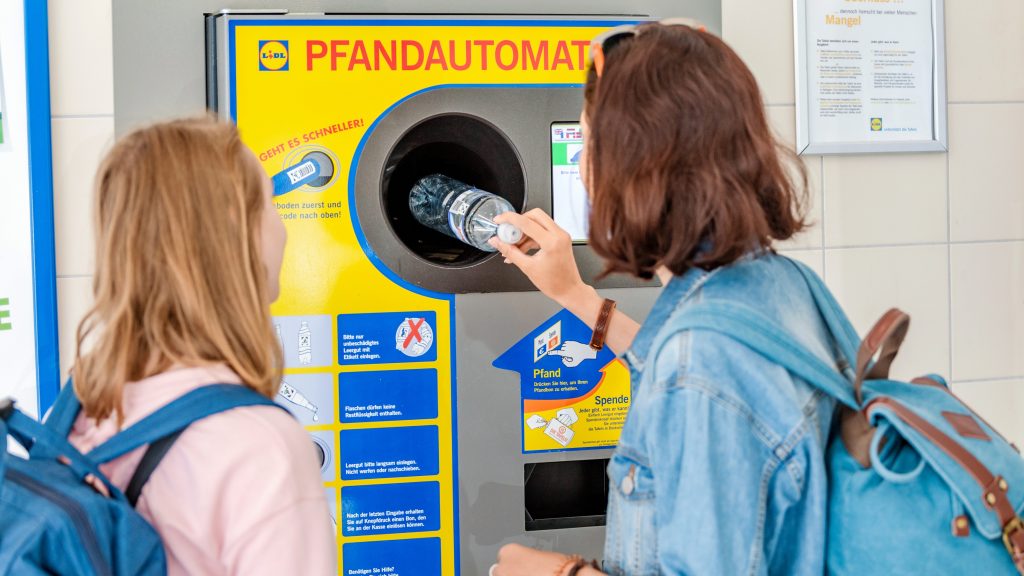
You’ll quickly come across the word Pfand in Germany. It refers to the deposit system for beverage containers. When you buy a drink in a single-use (Einweg) or multi-use (Mehrweg) bottle or can, you pay a small deposit, usually between 8 and 25 cents.
To get your money back, just return the empty containers to a reverse vending machine, called a Pfandautomat, which you’ll find in almost every supermarket. The machine scans your containers, prints out a voucher, and you can either redeem it for cash at the register or use it to pay for your groceries.
There’s also a lovely social aspect to this system. If you finish a drink in public and don’t want to carry the empty bottle, don’t just toss it in the trash. Instead, place it neatly by a public bin. Someone who collects bottles for the deposit money (Pfandsammler) will be thankful to find it.
10. Validate Your Public Transport Ticket, or Face the Consequences
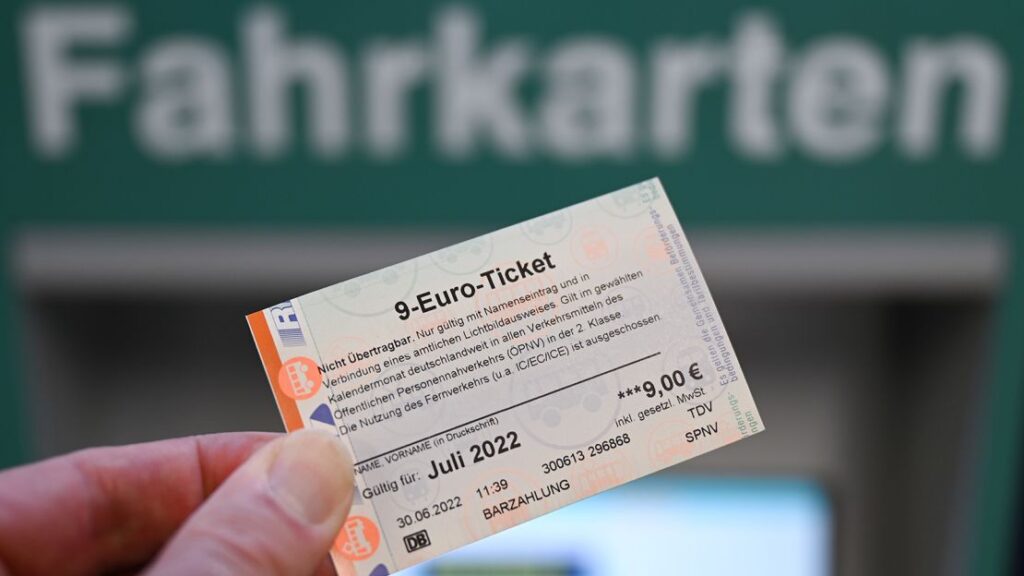
Using Germany’s public transport is pretty straightforward, but there’s one crucial step you can’t forget. Buying a ticket isn’t enough; you need to validate it (entwerten) before you start your journey.
Look for small stamping machines, usually red or yellow, on train platforms or inside buses and trams. You simply insert your ticket into the machine, and it gets stamped with the date and time, making it valid.
The system in Germany relies on trust, with no turnstiles or barriers. But be aware, plainclothes inspectors do random checks. If they catch you with an unvalidated ticket, the fine is hefty, usually around 60 EUR, and “I didn’t know” won’t get you out of it.
Knowing this simple rule will help you avoid any stress during your trip.
Germany is a place where rules and order help things run smoothly and with great respect. What might seem a bit unusual at first is really rooted in values like respecting time, privacy, community, and the environment.
By keeping these ten unspoken rules in mind, you’re showing respect for the local culture. And that’ll lead to more authentic experiences and interactions.
With these tips, now you’re all set to explore and enjoy everything Germany has to offer!